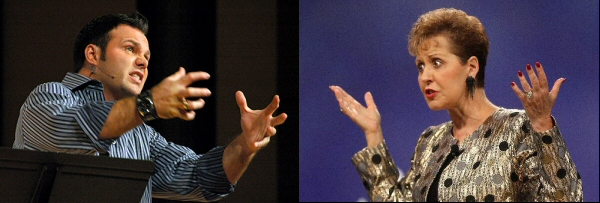I've been writing this post for a few days now. I'm posting it even though I think it's still a bit of a mess. If I've ever wanted an editor for my blog, it's now. But I'm sure if you guys can't handle it, you'll just stop reading, and that won't offend me in the slightest, especially as you probably won't tell me.
I've been reading a book for a little too long now called Two Views of Women in Ministry. I've also been looking at issues of women in ministry in class at college. It means that I've spent the last month or so thinking about gender roles in the church.
I decided I wanted to make my mind up on the issue, because I've generally just coasted along happy to let everyone else worry about it, but I knew that some day I'd have to pin my colours to the mast or at very least have my colours ready to be pinned when the time came.
I haven't yet made up my mind, but I'm working on it.
What I have been thinking about is that the debate is about more that just what women can and cannot do in a church. It's about Gender Roles and Biblical Authority. I say this because the way Christians make up their mind on the issue of gender roles will reflect their view of the Bible.
Part of the reason that people get so worked up on the issue is that if people reject the complementarian perspective (women can't do everything) it seems to be flying in the face of clear biblical teaching. So rejecting complimentarianism is rejecting biblical authority. Unfortunately the debate about the issue is muddied by the implications that are suggested by some positions within the debate. It's hard to say you're an egalitarian (woman can do everything) when you might get your commitment to the Word of God questioned.
However I'm not sure that the Bible is as clear on the subject as some people say it is. I am sure though that how we go about making up our mind on the issue of gender roles in the church will clarify where were stand on the issue of biblical authority.
For instance for some it's not really a matter of biblical authority at all. For them men and women are equal so they should be able to have equal roles. If the Bible says different then the Bible is wrong. It's easy enough.
Others who feel they owe a bit of allegiance to the Bible will read 1 Tim 2:12 ("I do not permit a woman to teach or to have authority over a man; she must be silent") and decide that Paul was wise in some cases but misled in this one and just expressing the culture of the day. So we should interpret Paul in light of his obvious cultural prejudices and dismiss anything that doesn't allow for the equality of the sexes.
The problem I see with this that while is seems more thoughtful, it's merely just cultural arrogance, or to use C.S. Lewis' term, "chronological snobbery"; the belief that because Paul lived in another time and in another culture then he's obviously wrong when he disagrees with us. It neglects the fact that the values of gender equality, and the expressions of that equality that we take for granted now have been established only fairly recently, and they fly in the face of the majority the church's history of interpreting the Bible. To declare, without serious thought, that 1900 years of Biblical scholarship is wrong because it disagrees with your cultural values is, like I say, arrogance.
I am not saying that the end position is wrong, just the process of getting there.
However, in contrast to this, others who believe the Bible and view it as perfect inerrant, aren't willing to view the Bible as flawed so they see 1 Tim 2:12 and the response is obvious: don't let a woman be a leader, don't let a woman preach, no debate.
The problem with this is that it fails to take into account the weight of biblical evidence for authoritative women's ministry within the Bible. And where the previous view assumes cultural inferiority, this one fails to think about cultural and biblical context entirely.
All these approaches fail to take the authority and/or nature of the Bible seriously.
The only way to appropriately deal with the issue while maintaining biblical authority is to look carefully at all the biblical evidence for and against women in ministry and then make your decision based on what you think the Bible is saying. You can't base your decision on just one or two proof-texts that support your argument, you can't just make up your mind without the Bible, because this isn't an issue the Bible is silent on, and you can't just make up your mind on a cursory reading of the Bible, because the issue is too complex. It needs thought, prayer, diligence and an openness to be change your mind.
As this is such a volatile issue, and but not really that important in the scheme of things (i.e. it's not a salvation issue), I reckon most people should deliberately not make up their minds. Unless you're going to put in the effort to decide on what you actually think the Bible is saying, perhaps it's better to just sit on the fence. It's not as if your indecision is going to stop people hearing about Jesus. And if you don't make a decision it saves you getting into fights and alienating people who disagree with you and it frees you up to get on with the more important things Christ calls us too.*
If you do want to have the debate then do the work to take the Bible seriously and work out what God has to say on the issue. To take the authority of the Bible seriously will mean that those who are for allowing women to do all types of ministry need to be willing to change their view if they find that the Bible states otherwise. For those who are holding on to male only eldership in the church also need to be willing to change their mind if they find their views are inconsistent with the Bible.
Too often we are holding our views because of something other than the Bible. We use the Bible to prop up their own ideas of equality or our own chauvinist values. When we are willing to ignore the teaching of the Bible because it clashes with our own ideas of what is right and wrong, then the Bible has ceased to be authoritative in our life.
Of course the problem is that if we base our decisions on the Bible we are in danger of offending people and/or being culturally insensitive, but if we base our decisions on something other than the Bible we are in danger of allowing God's revealed truth be be of secondary importance to accepted cultural truth. It will mean that the gospel can only be truthful if it fits in with cultural norms and the gospel will never fit in with the norms of any culture.
The greatness of what God has done in the gospel will always fly in the face of culture because universal human sinfulness and helplessness, and divine wrath, favour and forgiveness will never find a comfortable fit with any group of people in any time of history. The very fact that the Gospel transforms culture means that it must always be regarded as being above culture. We need to interpret culture in light of the Gospel not the Gospel in light of culture.
When we erode the authority of the Bible, we erode the authority of the gospel and we limit the chance it has to transform culture and transform lives.**
As far as I know of all those of you who read my blog your views on gender roles and biblical authority will stretch right across the spectrum, from conservative to liberal to the people who aren't Christians and consequently don't care at all. So for some of you biblical authority is a non-issue, you've never claimed to have the Bible as a guiding authority in your life. For others you like the Bible and see it as containing truth about God but you aren't willing to view it all as authoritative and inspired. Others of you are like me and you view the Bible as the inerrant word of God, authoritative because it is God's revelation of himself to us through which he uniquely helps us to understand it by the Holy Spirit.
So being who I am and having my views on the Bible I think the most helpful thing we can do for the debate on gender roles is to continually call people to have the debate in love, tolerance and openness to be wrong. We need to assess and re-assess the biblical evidence, and base our decisions on that. If we start to allow the church to make up it's mind on issues by established prejudice or by what is culturally accepted and appropriate rather than on what the Bible teaches we erode the strength our best, most reliable source of God's revelation. It'd be rather a shame, in our rush to hold on to what we think is right to ignore our best source of wisdom on what God thinks is right.
*I understand that some will view not allowing women to do every role as an injustice against women. And to do the work of Christ will be to fight against any kind of oppression of people due to their gender, race, age, looks or anything else. As far as I can tell the Bible is clear about the equal value and importance of both male and female. Both are created in God's image, both have equal access to God and his salvation, both are gifted by God to do good works and serve. Whatever the Bible teaches it does not teach that one gender is ontologically inferior to another. The debate, if had biblically, is whether equal value is equivalent to equal access to roles within the church. If that is the case and equality is firmly established how it is expressed should not a central issue to most Christians.
**Happily, it's God's gospel and not ours of even if we do manage to erode the authority of the gospel, it's going keep marching on transforming the world regardless of what we do to stop it. But the fact that God's saving transforming work is going to go on regardless of what we do is no excuse for us to neglect to protect the purity of the gospel and the authority of the Bible. Just because God will work despite us doesn't mean that's the way he wants to do it.
9/14/2009 12:28:00 am
To Teach or to Have Authority
Posted by
Unknown
|
Labels:
Christianess,
Long,
Theology
Subscribe to:
Comment Feed (RSS)

Blogs I like to read:
My Shared Items
Blog Archive
-
▼
2009
(269)
-
▼
September
(27)
- Neither Height nor Depth
- Work Fail
- Light and Gravity
- 25-09
- Pastor
- Thank You Jesus
- Summer Lovin'
- Peas
- International Preaching
- House Keeping
- Rejected: Update
- Rejected
- I agree with Kanye
- Half a dozen of the other
- To Teach or to Have Authority
- Public Holidays
- Thinking of the Future
- Which Film is this?
- Sensitivity
- And You Call Yourself Cultured
- Withdrawal
- Hairdresser
- Love Letter
- Lawyers
- Woy Woy
- Question
- Fighting
-
▼
September
(27)
